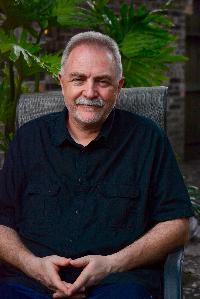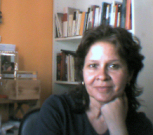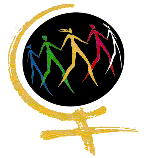| Pages in topic: < [1 2 3 4 5] > | Translation degree vs. other degree vs. no degree Thread poster: Catherine Bolton
|
|---|
BAmary (X) 
Canada
Local time: 14:05
English to Spanish
+ ...
Henry Hinds wrote:
I don't have the time to follow it all, but I would say this:
1.- I don't disparage formal education, and the more, the better. But:
2.- Formal education alone cannot make a translator or a conference interpreter. It's only a beginning.
3.- Profound language knowledge is an absolute requirement, and formal education alone cannot provide such knowledge. It's only a beginning.
So what did I say?
Get a good education and start to learn from there, and don't ever stop. And always remember that the world is your school, and every day is a new opportunity to learn.
A combination of both, yes. Plus specialization. Nicely said, Fronterizo.
| | | | | except for Degree in Translation | Jul 27, 2006 |
With a university degree in translation, having some 5 years of full time language studies in your backpack one can become a freelancer right away. (well, even still studying ) )
However, quite a few people have such degrees ) )
Konstantin Kisin wrote:
Very few people become freelancers right after finishing their degree in any profession. [/quote]
| | | | Glossarist (X)
English to Bengali
| The proof of the pudding.... | Jul 27, 2006 |
BAmary wrote: To Glossarist: Keats died in 1821. I don't think creative writing degrees even existed at the time. If they had, he would have probably had one!
Besides, writing is something totally different. I was talking about translation.
BAmary,
I laughed loudly when I read this.
Sorry, I have nothing against the thoughts you have expressed here and there must be some benefits of academic studies and formal training in translation. In fact that may be one of the ways to ensure that charlatans don't enter this profession. At the same time I can't be blind and make a sweeping statement. If I make a bowl of soup and you buy it from me and if it tastes good and is nourishing for you, you'll buy it again. I hope you won't ask then if I have a formal degree in cooking. The only thing important for me is the actual translation you produce and nothing else.
I have a book in front of me entitled 'The Translator's Art, Essays in Honour of Betty Radice', published by Penguin Books. There are several essays in this book, all written by eminent translators. I was reading the profiles of the contributors and I see none of them has a translation degree. Some have studied languages or the Classics but we have here a photographer, a painter and calligrapher, a career diplomat and others. While you may say that 30-40 years ago we didn't have so many schools teaching translation, that does not take away from the fact that in spite of that the world produced great translators. If your "theory" is foolproof, that shouldn't have happened. Please don't accuse me now saying that I am talking of people who translated literature!
If I am to satisfy this specific criterion of yours, I would fail. There is no school anywhere in the world that would teach me translation skills with reference to my language pair. Perhaps you would recommend that no translation should be done in these "obscure" languages until......Please smile.
One of our poets won the Nobel Prize in 1913 (not so long ago as John Keats). The poet concerned didn't have any formal degree. He didn't complete his schooling. The book based on which he received the Nobel Prize was translated by the poet himself. So it was a "translation" and not "writing". English was not his first language. Thankfully, the Nobel Committee didn't ask him if he had a degree in translation or who gave him the authority to translate when he didn't have a degree!
And please don't stop reading Keats's poems because he didn't have a degree in Creative Writing. After all, he didn't do too badly without such a degree, did he?
My best wishes to all.
Glossarist
[Edited at 2006-07-27 04:30]
[Edited at 2006-07-27 14:07]
| | | | Aurora Humarán (X) 
Argentina
Local time: 15:05
English to Spanish
+ ...
"Don't let schooling hinder your education."
But, let's first get that schooling to then decide what to do with it (questioning Steiner's or whoever's theory, wondering together with Schleiermaher whether to move writer or reader, reflecting on comparative structures, going beyond with Toury, etc.)
Of course academic training is key, and of course, the following needs to be taken into account:
1) it does not guarantee one will be a good translator.
2) academic training is not enough, then comes: 1) the real world and 2) more translation studies (i.e. seminars/workshops to update one's skills. I know many translators who make a picture with their university diploma and think that is enough. It is not!)
2) there are excellent translators without academic studies. This is also a fact. I work with a couple of translators who have never taken any translation studies, and they are excellent.
Au
| | |
|
|
|
| Kind of "off topic", about agencies (to Catherine) | Jul 27, 2006 |
cbolton wrote:
If I were an agency (which I'm not), I'd choose Rosa Maria, who has a degree in journalism AND experience, over some kid fresh out of translation school.
Catherine
I get the feeling that if you were talking about an *in-house* translator, the agency would go for the "fresh" kid (he he he), because they would basically "train" her/him and thus probably pay her/him a lot less than what they would have to pay Rosa María.
Of course, if it were a freelancer position, then the situation is totally different, because, as we all know, it's a jungle out there...
Ivette
| | | | Catherine Bolton 
Local time: 20:05
Italian to English
+ ...
TOPIC STARTER In memoriam | I meant freelancer | Jul 27, 2006 |
ICL wrote:
I get the feeling that if you were talking about an *in-house* translator, the agency would go for the "fresh" kid (he he he), because they would basically "train" her/him and thus probably pay her/him a lot less than what they would have to pay Rosa María.
Of course, if it were a freelancer position, then the situation is totally different, because, as we all know, it's a jungle out there...
Ivette
Yes, I meant that I would prefer to outsource to someone with experience.
Catherine
| | | | | Specialisation, schooling, culture | Jul 27, 2006 |
As many have pointed out before me, I don't believe that a formal education in translation is absolutely necessary for our profession. I, for one, don't have one.
I used to be perfectly bilingual (when I was a kid, living abroad in various English speaking countries, with English schooling). My Italian high school degree in classical studies had basically no modern languages in its curriculum. My university degree in Political Science and Economics had very basic language requirements. My... See more As many have pointed out before me, I don't believe that a formal education in translation is absolutely necessary for our profession. I, for one, don't have one.
I used to be perfectly bilingual (when I was a kid, living abroad in various English speaking countries, with English schooling). My Italian high school degree in classical studies had basically no modern languages in its curriculum. My university degree in Political Science and Economics had very basic language requirements. My MA in Gender Development studies in England took for granted my knowledge of English.
And I had no intention whatsoever of becoming a translator.
My first translation were horrible. Having some very fiathful clients, I still often bump into some old translations of mine to update or amend, and I am quite ashamed of what I see
Now that I have been working as a full time freelancer for the past 12-13 years, I can say that I certainly lack some language training: elasticity mostly. But, as a legal and financial translator, I have realised in the years that my personal formal and informal preparation is very important for my profession. My general culture is of enormous importance. And I find it is even more so with more "general" translators.
My cooperative often works with formally trained translators, but we realised that they have no knowledge whatsoever of Economics or Finance. None. They don't distinguish a share from a bond. And often they don't recognise their limits.
In Italy, translators can go through their 4-5 years of training (at least some years ago, I have no idea if this has changed in the meantime) without any kind of specialisation. And very few of them are personally interested in Finance and stock markets (no wonder!).
So, for me it is quite easy to translate financial texts and, if they are more marketing biased or have a more "conversational" mark, I have my text reviewed and refined by a "trained" translator. The result is excellent. But it doesn't work the other way around. It is absolutely inefficient.
So, in short, I believe that technical translations should be translated by people who are specialised in the specific field (whether or not they also have formal translation training). While more general subjects are probably translated best by "graduated" translators.
At the base of all this, I strongly believe that to be a good translator one must have an excellent general knowledge, culture, interest in what happens around, must read newspapers and books. And intelligence. ▲ Collapse
| | | | Williamson 
United Kingdom
Local time: 19:05
Flemish to English
+ ...
| Some remarks and eternal debate... | Jul 27, 2006 |
I can only compare with an ATPL: Airline Transport Pilot License. Before flying candidate pilots have to study metereology, aircraft engines and types of aircrafts, physics, aviation law etc...
Then they take a theoretical exam. If they pass they can learn how to fly. Training starts with a Cessna, after that a twin-turbo prop, then a number of hours on the flight sim.
Students first obtain a private pilot license (ppl). After having flown a number of hours, they can take the test f... See more I can only compare with an ATPL: Airline Transport Pilot License. Before flying candidate pilots have to study metereology, aircraft engines and types of aircrafts, physics, aviation law etc...
Then they take a theoretical exam. If they pass they can learn how to fly. Training starts with a Cessna, after that a twin-turbo prop, then a number of hours on the flight sim.
Students first obtain a private pilot license (ppl). After having flown a number of hours, they can take the test for a commercial license, which enables them to work for (small) airlines.
Only after having built up a certain number of hours, they can give a try at the ATPL exam. To become First Officer, an ATPL-holder needs 1500 hours of flight-experience.
To become captain 5000 hours are the minimum.
To keep their ATPL, pilots have to go through tests every six months.
--
Like every other professional, these people study first, get trained and then they can fly.
In translation it is the other way around. If you have a (faint) notion of a foreign language and you know word, sit down and start translating.
I am not saying that a translator diploma is the alpha and the omega. As mentioned above, academics form a good basis to start with. The rest is a lifelong learning.
-------
Some programs are much more intensive than Herriot-Watt.
-Highly reputable, but for what branches of study? 40 hours is not enough to even get some notions of a language, let alone translate or interpret)-
--
Some 240 hours per year is more like it. If you multiply this times 4 (old "licence" system) or 5 (new Master system), how many hours do you get. I have known people who didn't know a word of Russian when they started with the translator training and who after four years were able to interpret the discussion and speech of a member of the Communist party (that was in 1985). Especially for Russian supervison and coaching was very intense. Some of their professors were native speakers and others came from East-Germany. ..
In the old system, you got an in-depth study of your mother-tongue and two foreign languages as well as 20 "general courses" spread over 4 years. These entailed economics, economic geography, political systems, international instutions, law, art, sociolinguistics, ethics, .... to much to remember... When you left you had a solid basis. Of course, you have to keep up with technology, software packages, enhance your language skills....
Back in those day the face of Pavel Palazchenko Mr.Gorbachev's interpreter was a familiar face on tv-screens.
He was one of those exceptions who learned by doing.
Question of the language school:
Europe may be different from the US. :
No, it are T&I-institutes. As you may have noticed the EU now consists of 25, soon 27 members. That means trade with those new member states.
For that reason some T&I-institutes have added Polish (a pivot language at the EP) and Hungarian as B/C(?) -languages....
China is very popular today and for that reason Chinese has been upgraded to C-status.
In the former structure, it took you two years to acquire a good knowledge of your foreign C-language. After that, a selection was made between translation and interpreting. Those who were not "good enough" for interpreting had the choice of becoming a translator or study something else, like law.
Under the BachelorMaster-system, it is three years to get your Bachelor and two to obtain your master.
However, postgrad.interpreting courses like the EMCI are also on offer. You can start with them if you pass the entrance tests.
----
What AIIC has to do with the learning process: to become a member of AIIC, you need to have a degree in conference interpreting and apply. You then become a aspirant member for two years. That is, if you find a mentor, member of AIIC who is willing to take you as his/her apprentice.
I don't say that AIIC-members are better, but the chances that they are better than self-anointed interpreters are bigger.
Reasons
1. You need to get accepted at a good school.
2. "Survive" the Conference Interpreter training.
3. Pass the exams.
4. Gain experience
5. Find a mentor and apply for membership. You are not going to tell me that in those four to five years that this takes, you have not acquired skills and experience.
No formal education alone is not enough. You have to keep learning.
Degree or not and translate into the native language or both ways are just one of those topics which will cause a time-consuming debate.
As long as the profession will not be regulated and Joe/Jane Doe can become translator/interpreter overnight, there will never be a consensus about these issues.
However,If you should feel inclined to practise some professions without a degree/license to practise you would end up in court.
As far as the comparison with the plumber goes: some trades are "more professional" than translator: If I have my car serviced, it costs some £30/€30 at a small garage and about 50 at the garage of a franchise holder. Even my plumber asks more per hour than some "professional translators" living in Western-Europe and the U.S.
[Edited at 2006-07-27 11:29] ▲ Collapse
| | |
|
|
|
| Jack-of-all-trades | Jul 27, 2006 |
Glossarist wrote:
The book based on which he received the Nobel Prize was translated by the poet himself. So it was a "translation" and not "writing". English was not his first language. Thankfully, the Nobel Committee didn't ask him if he had a degree in translation or who gave him the authority to translate when he didn't have a degree!
:grin:
Bamary: I did my specialization in Law and that's the only field I work in.
But in your profile are listed as well:
- Business and finance
- Purchasing and inventory
- Marketing
- Environmental issues
- Medical
- Pharmaceutical
- Engineering
Plus that Scientific - Literary Translator
What is true?
| | | | Niina Lahokoski 
Finland
Local time: 21:05
Member (2008)
English to Finnish
+ ...
| A newbie's view | Jul 27, 2006 |
Many of you seem to think that one should not be "allowed" to begin as a freelancer without several degrees and years of experience in some totally other field than translation.
Well, I am young (25), inexperienced, "monolingual" and not even out of translation school. I do not (yet) have a degree in translation, or in any other field for that matter. Yet I work practically full-time and earn my daily bread as a freelance translator.
Now you probably think that I must... See more Many of you seem to think that one should not be "allowed" to begin as a freelancer without several degrees and years of experience in some totally other field than translation.
Well, I am young (25), inexperienced, "monolingual" and not even out of translation school. I do not (yet) have a degree in translation, or in any other field for that matter. Yet I work practically full-time and earn my daily bread as a freelance translator.
Now you probably think that I must be very cheap and/or the quality of my work can not be anything near satisfactory. My rates are not that low, and I like to think that my clients keep coming back because they're happy with my work. Every assignment is for me a lesson of sorts, and I learn something new from every single job.
(To be honest, I'm only missing from my BA degree a writing skills test and an oral communication course, that has nothing to do with translation and is obligatory for all university students...) ▲ Collapse
| | | | | New Age of professional possibilities (and PS note to BAMary) | Jul 27, 2006 |
I get the impression that it has been made more or less clear that some (all?) of us can agree that education (academic degrees) alone and experience alone are not sufficient to make someone professional or capable to do any job, because it's usually a combination of both, plus the magic element of talent.
But I wanted to mention that nowadays, with all this technology that we have available, but mainly computers/software, on the one hand, many professions are becoming more accessib... See more I get the impression that it has been made more or less clear that some (all?) of us can agree that education (academic degrees) alone and experience alone are not sufficient to make someone professional or capable to do any job, because it's usually a combination of both, plus the magic element of talent.
But I wanted to mention that nowadays, with all this technology that we have available, but mainly computers/software, on the one hand, many professions are becoming more accessible to people, and in many cases just a "little bit" of training can make it possible for people to choose a career (or a career change).
Perhaps this is the case of translation, even though, paradoxically, it has been in this technology age where translation has become a "career/profession" per se, with schools being created more and more to serve an increasing demand for customers/students interested in becoming translators.
On the other hand, because of this accessible technology, many careers are "overlapping", meaning, sometimes you need to learn enough about software/hardware in order to become a technical translator, or you are a lawyer who then learns enough about linguistics because this way you will get a better job given the overpopulation of lawyers in the market.
And so, what some might consider "unprofessional/unfair competition" is actually the result of the way technology has twisted the job market. And, to be honest, I don't know if it is possible to stop this.
Trying to be optimistic about this situation (in order to avoid getting frustrated by it), I consider this a sort of new "renaissance", meaning we now have an increasing number of professionals "à la Leonardo da Vinci", who in many cases have sufficient knowledge of various areas that makes them potentially eligible for becoming professionals of such areas.
Of course only in areas that allow such possibilites (the "traditional" professions will still not let you become one of their club members unless you get the appropriate academic degrees).
And also of course, in many cases you will still need some "formal" training in order to be given a chance, unless you are (like previously mentioned), someone like Almodóvar, with talent enough to start shooting immediately great (or at least funny in many cases) films without ever having gone to any film school (I'm sure Almodóvar would have loved to have one of those light video camaras they now sell for so little, instead of the bulky 8/16 mm he had to start with).
Saludos,
Ivette
PS: BAMary, in spite of all I said above, maybe we should create a logo/badge/banner that says something like "I studied translation and I AM PROUD". I'm sure it might sell well in Amazon/Ebay.
Of course, those who did not study translation and are also working successfully as translators could also create their own pride logo/badge/banner.
I think nowadays Amazon and Ebay accept just about all kinds of merchandise... ▲ Collapse
| | | | BAmary (X) 
Canada
Local time: 14:05
English to Spanish
+ ...
| I have two degrees | Jul 27, 2006 |
Tuliparola wrote: Glossarist wrote:
The book based on which he received the Nobel Prize was translated by the poet himself. So it was a "translation" and not "writing". English was not his first language. Thankfully, the Nobel Committee didn't ask him if he had a degree in translation or who gave him the authority to translate when he didn't have a degree!
:grin: Bamary: I did my specialization in Law and that's the only field I work in. But in your profile are listed as well: - Business and finance - Purchasing and inventory - Marketing - Environmental issues - Medical - Pharmaceutical - Engineering Plus that Scientific - Literary Translator What is true?
I first completed my Technical - Scientific - Literary degree (four years) and then I went another four years for Legal Translation. I only do Law now, but of course in my profile I include all the experience I have. And, unlike many other people who state to be native in five or six languages, I don't lie in my profile.
Besides, if you read my profile attentively enough, you must have noticed that my line is "Legal expert".
[Edited at 2006-07-27 19:31]
| | |
|
|
|
Catherine Bolton 
Local time: 20:05
Italian to English
+ ...
TOPIC STARTER In memoriam | Native language | Jul 27, 2006 |
BAmary wrote:
And, unlike many other people who state to be native in five or six languages, I don't lie in my profile.
Yes, but I see that you translate into English, which is not your stated native language (Spanish), and from French to English, neither of which are obviously native languages.
Do you outsource or do you do those jobs yourself?
One of the things they teach people at translation school here in Italy is that, on a professional level, you should translate strictly into your native language. Doing it as a learning experience is something else.
Just curious.
Catherine
[Edited at 2006-07-27 15:32]
| | | | Maria Karra 
United States
Local time: 14:05
Member (2000)
Greek to English
+ ...
| what's the point? | Jul 27, 2006 |
Why exactly are people looking at BAmary's profile and questioning in public her fields of expertise and her language pairs? Is this the subject of this thread? I'm sorry but I find this unacceptable, not to mention off-topic. If you are curious, I suggest you contact BAmary via her profile.
Maria
| | | | Catherine Bolton 
Local time: 20:05
Italian to English
+ ...
TOPIC STARTER In memoriam | I'm curious about the translation school thing | Jul 27, 2006 |
Maria Karra wrote:
Why exactly are people looking at BAmary's profile and questioning in public her fields of expertise and her language pairs? Is this the subject of this thread? I'm sorry but I find this unacceptable, not to mention off-topic. If you are curious, I suggest you contact BAmary via her profile.
Maria
I explained my curiosity and don't see anything wrong with the question. She's based in North America and maybe translation schools have different approaches there.
Catherine
| | | | | Pages in topic: < [1 2 3 4 5] > | To report site rules violations or get help, contact a site moderator: You can also contact site staff by submitting a support request » Translation degree vs. other degree vs. no degree | Anycount & Translation Office 3000 | Translation Office 3000
Translation Office 3000 is an advanced accounting tool for freelance translators and small agencies. TO3000 easily and seamlessly integrates with the business life of professional freelance translators.
More info » |
| | TM-Town | Manage your TMs and Terms ... and boost your translation business
Are you ready for something fresh in the industry? TM-Town is a unique new site for you -- the freelance translator -- to store, manage and share translation memories (TMs) and glossaries...and potentially meet new clients on the basis of your prior work.
More info » |
|
| | | | X Sign in to your ProZ.com account... | | | | | |












